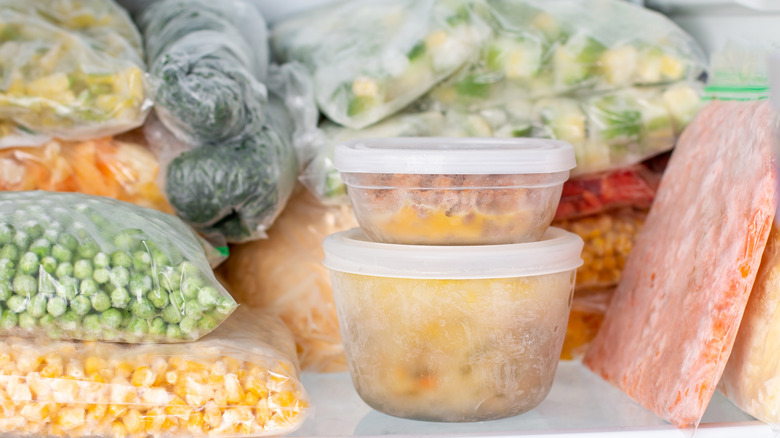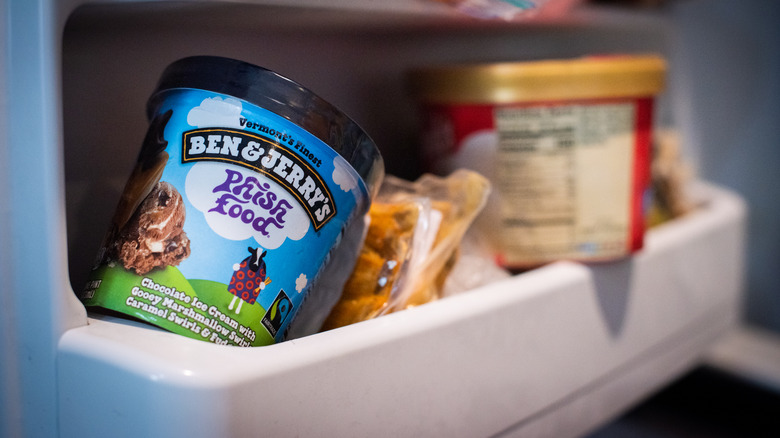Tips For Protecting Perishable Foods From Summer Power Outages
The living may be easy in summertime, but the time of year signals the return of hurricane season in the Atlantic and Eastern Pacific (via the National Oceanic and Atmospheric Administration). Climate change is exacerbating wild weather conditions, reports ABC News, with heat waves and more intense storms brewing across the United States. With extreme weather comes power outages. Taking some precautions to protect your perishables will not only keep you fed during the storm but also be easier on your wallet when the storm clouds disperse.
Knowledge is power, and it's important to know the temp of your fridge. The Takeout advises purchasing appliance thermometers to accurately keep track of the temperature in your refrigerator and freezer. If the temp in the fridge goes below 40 degrees, it's time to move the food to an ice-filled cooler. For freezer items, that sweet spot is zero degrees Fahrenheit.
According to the American Red Cross, if power outages are expected to go longer than four hours, fill up coolers — the cheap Styrofoam kind will do — with perishables like milk and eggs. Keeping these refrigerated items on ice will keep them colder longer. If the power outage lasts more than 24 hours, do the same with freezer items.
According to the FDA, refrigerators will stay cold for four hours, and a full freezer for 48, as long as the doors remain closed. So keep opening and closing the appliance to a minimum.
Protect perishables during summer power outages
If it looks like a big storm is brewing, it may be wise to invest in a block of dry ice. Fifty pounds of the stuff will keep a freezer cold for up to two days, says the FDA. Of course, it helps if the freezer is fully stocked. Good Housekeeping explains that, while you want good air circulation in the freezer, keeping it full aids with cooling. To fill space, toss some refrigerated items like lunch meats and leftovers into the freezer, preserving their shelf life, too.
Family Handyman recommends filling containers with water and popping them in the freezer before the storm. If the power goes, there will be extra ice packs scattered throughout to keep the food cold. This will also pack the freezer a little tighter, holding the chill air in the box better.
When the power returns, Michigan State University says that milk products like butter and hard cheese, fruits, raw veggies, condiments, and bread are all safe to keep even if the refrigerator's temperature climbed above 40 degrees. (However, the FDA recommends tossing meats, milk, seafood, eggs, and leftovers.) Frozen items with ice crystals on the package have not fully thawed (via the FDA), so those can go back in the freezer. The exception is ice cream, which does not re-freeze well, according to MSU. Silver lining? A power emergency gives you free rein to eat those pints of Ben & Jerry's first.

